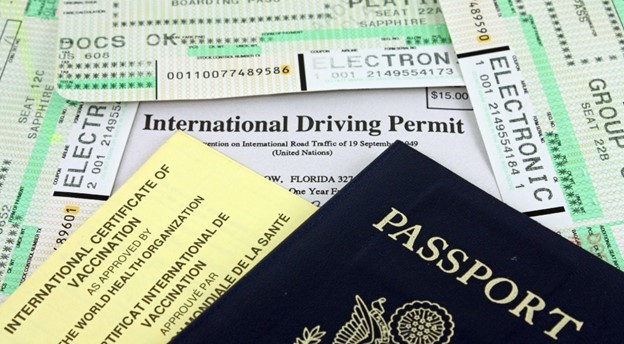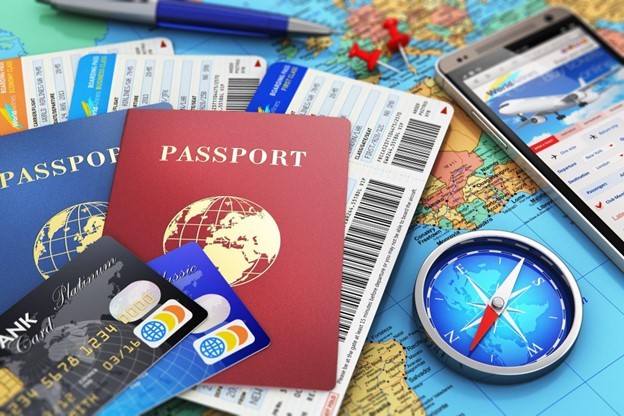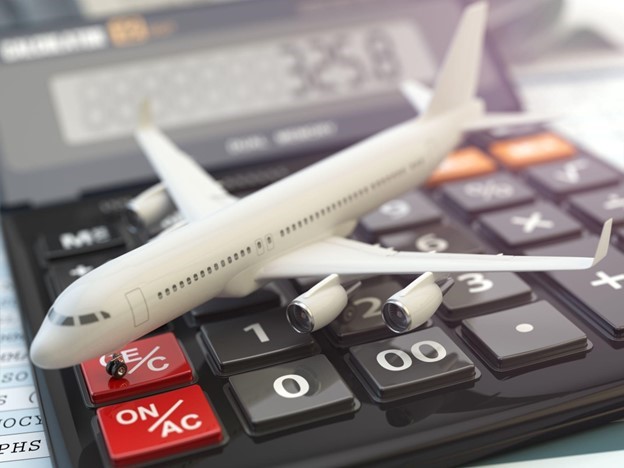 In today’s interconnected world, international travel has become increasingly common. Whether for business, leisure, or education, traveling across borders necessitates proper documentation to ensure a smooth and hassle-free experience. Among the essential paperwork required for international travel are licenses and permits, which vary depending on the nature and purpose of the trip. In this comprehensive guide, we will delve into the intricacies of international licenses and travel paperwork, providing valuable insights for individuals interested in exploring the world.
In today’s interconnected world, international travel has become increasingly common. Whether for business, leisure, or education, traveling across borders necessitates proper documentation to ensure a smooth and hassle-free experience. Among the essential paperwork required for international travel are licenses and permits, which vary depending on the nature and purpose of the trip. In this comprehensive guide, we will delve into the intricacies of international licenses and travel paperwork, providing valuable insights for individuals interested in exploring the world.
International Driving Permits (IDP):
One of the foremost considerations for travelers planning to drive abroad is the International Driving Permit (IDP). When obtaining an International Driving Permit (IDP), it’s prudent to consider consulting a car accident lawyer for guidance on international driving laws and potential legal implications in the event of unforeseen accidents abroad. Serving as a globally recognized translation of a driver’s license, an IDP facilitates communication with foreign authorities and validates the holder’s driving credentials. To obtain an IDP, individuals must meet specific eligibility criteria and follow a straightforward application process. It’s important to note that while an IDP is not a standalone document, it complements a valid driver’s license and is required or recommended in many countries.
Visa Requirements:
Visas play a pivotal role in regulating international travel by granting permission to enter a foreign country for a specified purpose and duration. Understanding the various types of visas, such as tourist, business, and work visas, is crucial for navigating the application process effectively. Factors influencing visa requirements include the traveler’s nationality, destination country, intended activities, and duration of stay. While some countries offer visa-free or visa-on-arrival policies for certain nationalities, others have stringent visa requirements that necessitate meticulous planning and documentation. It’s essential for travelers to stay informed about any recent changes or updates to visa policies, as regulations may vary and impact entry eligibility.
Passport Essentials:
A valid passport is a fundamental travel document that serves as proof of identity and nationality. Renewing passports well in advance of their expiration dates is advisable to avoid travel disruptions. Additionally, travelers should familiarize themselves with passport requirements, including specific photo specifications and validity periods. Safeguarding passports during travel is paramount, and individuals should be prepared to report lost or stolen passports promptly to the relevant authorities. It’s also recommended to keep digital copies of passport information stored securely for easy access in case of emergencies.
Customs Declarations:
Customs declarations are mandatory declarations of goods and currency brought into or taken out of a country. It is imperative to accurately declare items subject to customs regulations to avoid penalties or confiscation. Common items requiring declaration include alcohol, tobacco, currency exceeding specified limits, and certain food items. Utilizing technology, such as electronic declaration systems, can streamline the customs process and enhance efficiency at border crossings. Travelers should also be aware of any additional documentation requirements for restricted or prohibited items to ensure compliance with local laws and regulations.
Travel Insurance:
Travel insurance provides financial protection against unforeseen events during travel, such as medical emergencies, trip cancellations, or lost baggage. Selecting the right travel insurance policy involves considering factors such as destination, duration, activities planned, and coverage options. Understanding policy terms, exclusions, and claim procedures is essential for making informed decisions and mitigating risks associated with international travel. Additionally, travelers should review the coverage limits and provisions related to COVID-19, including coverage for medical expenses and trip cancellations due to the pandemic.
International Business Licenses:
For entrepreneurs and business professionals engaged in international commerce, obtaining the necessary licenses and permits is imperative. International business licenses facilitate compliance with local regulations and licensing authorities, enabling smooth operations across borders. Depending on the nature of the business, different types of licenses may be required, including those for import/export, franchising, or consulting services. Understanding cultural and legal nuances is essential for navigating the complexities of international business ventures successfully.
Professional Certifications and Licenses:
Professionals seeking opportunities abroad may encounter varying requirements for professional certifications and licenses. Recognition and transferability of credentials across borders depend on factors such as industry standards, regulatory frameworks, and bilateral agreements. Obtaining recognition or equivalency of professional qualifications may involve rigorous assessment processes, requiring thorough preparation and documentation. Leveraging resources and organizations specializing in international credential evaluation can facilitate the recognition process and enhance professional mobility.
Understanding Reciprocity Agreements:
Reciprocity agreements between countries serve to facilitate mutual recognition of licenses and certifications, promoting ease of mobility for professionals and travelers. These agreements establish frameworks for acknowledging each other’s credentials, thereby reducing barriers to entry and fostering international cooperation. While reciprocity agreements offer numerous benefits, individuals should be aware of potential challenges or limitations, such as varying eligibility criteria and administrative requirements. It’s advisable for individuals to thoroughly research the specific terms and conditions of reciprocity agreements relevant to their profession and destination country to ensure compliance and eligibility.
Navigating Language and Translation Requirements:
Language proficiency and translation play crucial roles in international licensing processes, ensuring effective communication and comprehension of documentation. Requirements for language proficiency exams and translated documents vary depending on the jurisdiction and licensing authority. Accessing translation services and resources for official documents and certifications can facilitate compliance with language requirements. Moreover, cultural considerations in language and translation underscore the importance of linguistic and cross-cultural competence in international settings.
Conclusion:
Navigating the complexities of international licenses and travel paperwork requires careful planning, attention to detail, and a comprehensive understanding of regulatory requirements. By familiarizing themselves with the intricacies of IDPs, visas, passports, customs declarations, travel insurance, business licenses, professional certifications, reciprocity agreements, and language requirements, travelers can embark on their journeys confidently and responsibly. As globalization continues to shape our interconnected world, staying informed and prepared is essential for unlocking the boundless opportunities that international travel offers.
Pat Baker is an avid traveler, who has been to many countries, and writes for car accident lawyers in the Philadelphia area.










